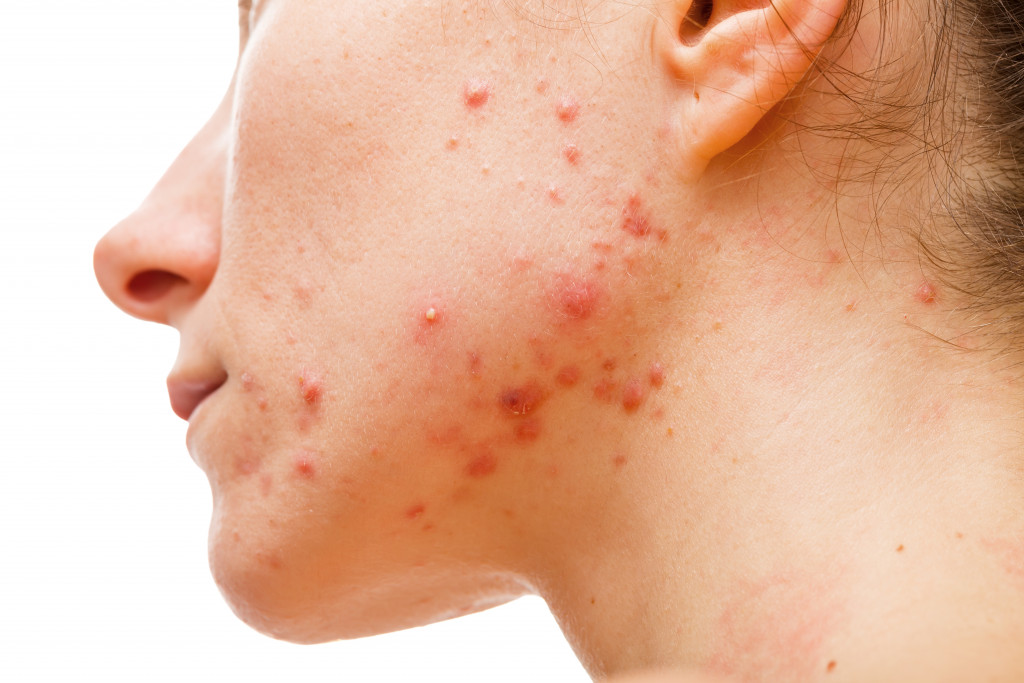• Acne is a common skin disorder in the U.S., affecting up to 50 million people, with 85% of those between 12 and 24.
• Hormonal changes due to puberty, pregnancy, or menopause can increase oil production and cause breakouts.
• Stress can also lead to acne flare-ups, as increased cortisol levels increase sebum production and clog pores.
• Diet also plays a role in acne; foods high in sugar and saturated fats can lead to more frequent breakouts.
Are you suffering from acne? If so, you are not alone. Acne is the most common skin disorder in the United States, affecting up to 50 million Americans and 85 percent of people between the ages of 12 and 24. It can be a source of physical and emotional distress, but there are ways to manage it. Here’s everything you need to know about acne and how to control your skin health.
What Is Acne?
Acne is an inflammatory skin condition that occurs when dead skin cells, oil, and bacteria get trapped in the pores. It usually appears on the face, neck, chest, back, shoulders, and upper arms. Common signs of acne include whiteheads (closed pores clogged with oil or bacteria), blackheads (open pores clogged with oil or bacteria), pimples (inflamed bumps filled with pus), cysts (deeply rooted inflamed blemishes filled with pus), nodules (large tender bumps under the surface of the skin), and scars (visible marks left behind by acne).
Risk Factors
Some people are more likely to get acne problems than others. Here are some risk factors behind that:
Hormonal Changes
Hormones play a significant role in the development of acne. Increased testosterone or other hormones during puberty can increase oil production, resulting in more frequent breakouts. Similarly, hormonal shifts due to pregnancy or menopause can also lead to an influx of acne. If you are experiencing sudden hormone changes, you must be aware of the potential for new or worsening acne.
Stress
High levels of stress can also cause an increase in breakouts. Stress causes your body to produce more cortisol, which increases sebum production and leads to clogged pores and inflammation. Finding healthy ways to manage stress, such as meditation or exercise, is vital to reduce stress-induced breakouts. In addition, taking some time each day to relax and unwind can reduce your risk of acne flare-ups due to stress.
Dietary Choices
What people eat can affect their skin health more than people realize. For example, a diet high in sugar and saturated fats can lead to increased sebum production and more frequent acne outbreaks. On the other hand, eating foods high in vitamins A and E and omega-3 fatty acids will help keep your skin nourished from within and reduce the chances of developing breakouts due to dietary choices.

Treating Acne
Thankfully, acne can be treated. Here are some ways to do that:
Topical Treatments
Topical treatments are typically the first line of defense against acne. These treatments come in the form of creams, gels, and ointments that are applied directly to the skin. Common ingredients used in topical treatments include benzoyl peroxide, salicylic acid, and retinoids. Each ingredient works differently to treat acne; for example, benzoyl peroxide kills bacteria that cause breakouts, while retinoids work by unclogging pores and preventing new breakouts from forming.
Non-Surgical Treatments
Acne scarring can be treated with a variety of non-surgical treatments. One of the best ways to treat it is through robust dermal fillers. These fillers are made from a naturally occurring substance that helps to add volume and hydration to the skin. In addition, the hyaluronic acid in dermal fillers fills in depressed acne scars and improves the skin’s texture.
Oral Medications
In more severe cases of acne, a doctor may prescribe oral medications. These medications often contain antibiotics or hormones which help reduce inflammation and kill bacteria that cause breakouts. However, it is essential to note that oral medications should not be taken without consulting a doctor first, as they can have serious side effects if misused. Additionally, it is essential to finish all doses of medication prescribed by your doctor even if your skin appears clear; this ensures that all bacteria have been killed and prevents future breakouts from occurring.
Taking care of your skin is essential if you are dealing with acne—or if you want to avoid ever having it in the first place! Following these tips can help improve your complexion over time while helping reduce inflammation and scarring associated with this common skin condition. However, if you struggle with persistent breakouts despite following these steps, don’t hesitate to speak with your healthcare provider about other treatment options that may better suit your needs.

